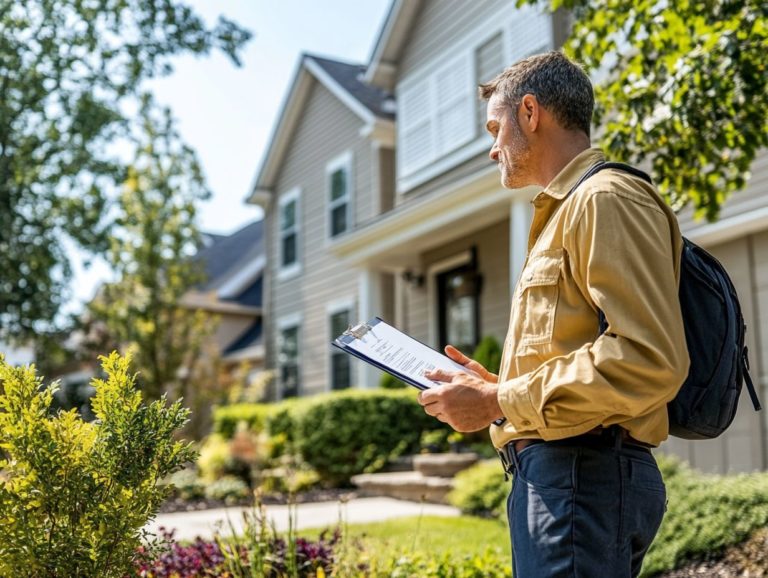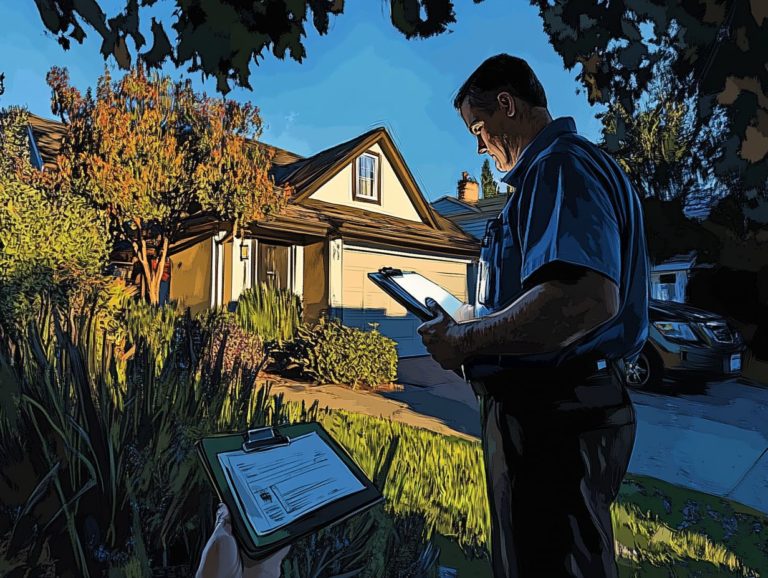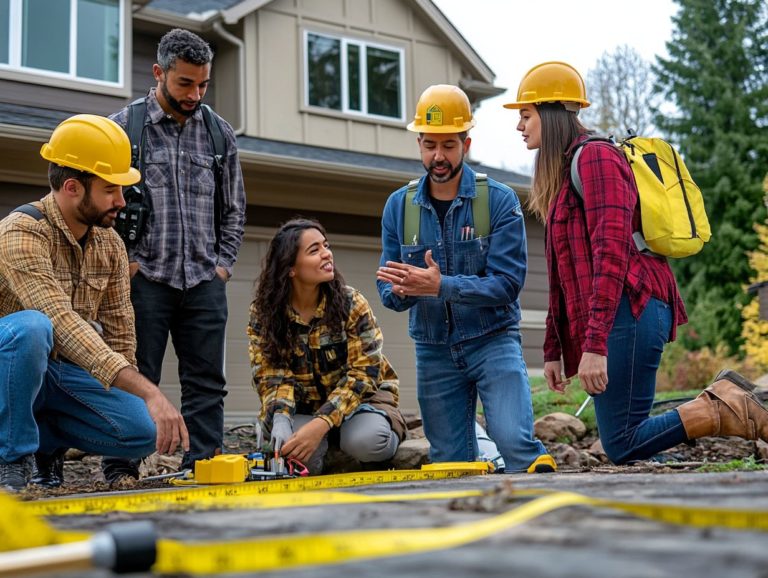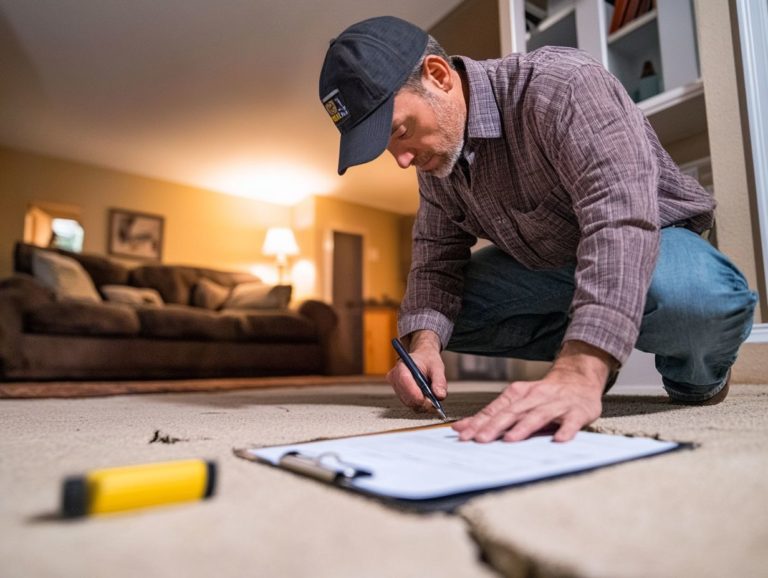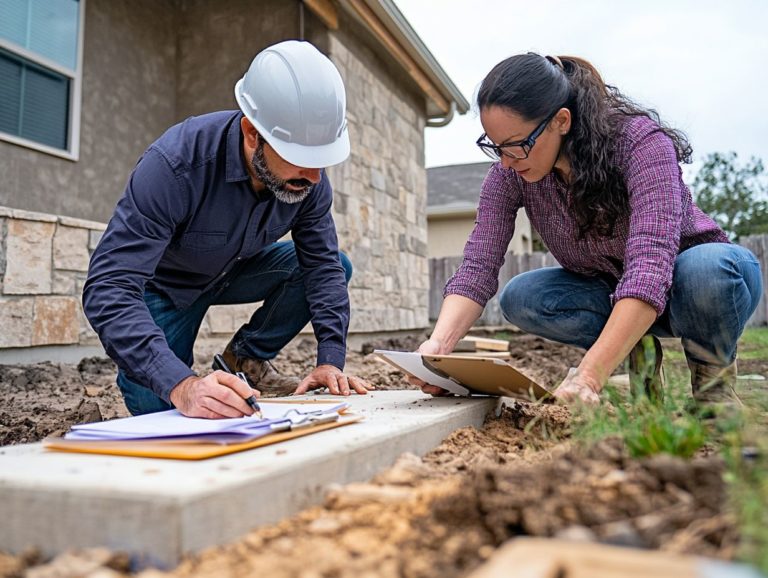Understanding Home Inspection Protocols
When you re buying or selling a home, a thorough inspection can truly make all the difference. Home inspections reveal hidden issues and provide you with peace of mind, ensuring you know exactly what you re dealing with.
This article delves into the essential aspects of home inspections from what to expect during the process to the key areas inspectors focus on. You ll also explore various types of inspections, learn how to choose the right inspector, and uncover tips for interpreting the inspection report.
Whether you re a first-time buyer or a seasoned investor, grasping these elements will empower you to make informed decisions about your property.
Contents
- Key Takeaways:
- The Importance of Home Inspections
- What to Expect During a Home Inspection
- Areas of the Home that are Inspected
- Types of Home Inspections
- Choosing a Home Inspector
- Interpreting the Inspection Report
- Addressing Issues Found During Inspection
- Frequently Asked Questions
- Have you ever wondered about home inspection protocols?
- Why is it important to understand home inspection protocols?
- Who creates home inspection protocols?
- What are some common areas that home inspection protocols cover?
- Do all home inspectors follow the same protocols?
- What should I do if I have questions about the home inspection protocols?
Key Takeaways:
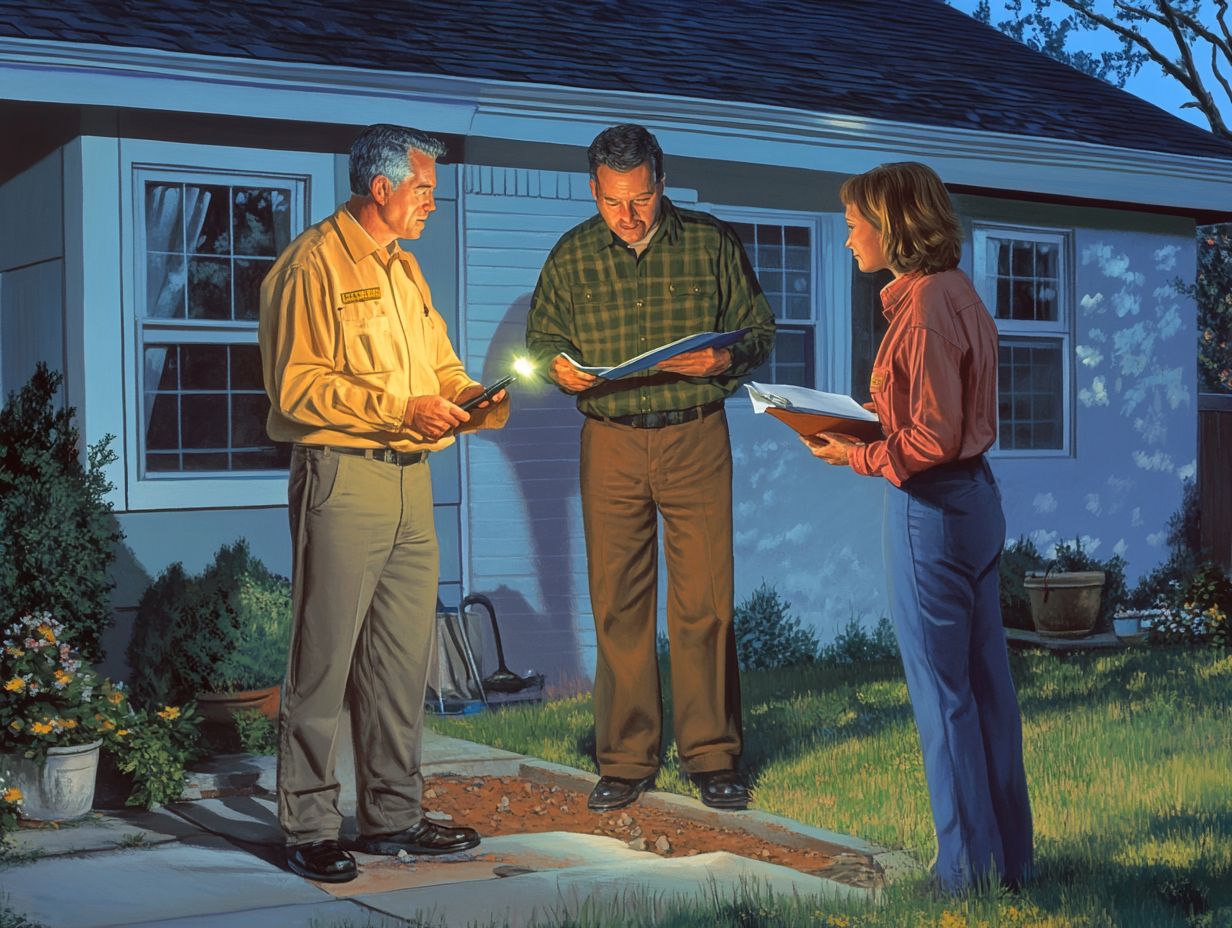
- Home inspections are crucial for identifying potential problems in a property before purchasing, saving you time and money in the long run.
- Expect a thorough examination of the property’s structure, systems, and major components during a home inspection.
- Choose a qualified and experienced home inspector.
- Thoroughly review the inspection report to understand any issues and the necessary steps to address them.
The Importance of Home Inspections
Home inspections are a crucial element in the real estate journey. They provide a professional evaluation that equips you whether you re buying or selling with the knowledge to navigate potential issues and ensure the structural integrity of a property.
Understanding the inspection process, including the home inspector’s role, can dramatically impact your home purchase agreement. This safeguards you against unexpected repair expenses and helps you make informed decisions about future maintenance.
A comprehensive inspection can uncover both major and minor defects. It provides invaluable insights into the property s physical condition, including aspects like electrical systems, plumbing, and heating, ventilation, and air conditioning systems.
It also highlights any safety concerns, ensuring that you re fully aware of what lies beneath the surface.
Why Home Inspections are Necessary
Home inspections are essential for you as a home buyer. They offer an important inspection report detailing the property’s condition and highlighting potential issues that could arise later.
These evaluations not only identify structural problems but also significantly influence the overall appraisal value. By engaging a qualified inspector, you gain insights into critical aspects like roofing, plumbing, and electrical systems, ensuring you’re fully informed about any necessary repairs or maintenance that could impact your financial investment.
Understanding the inspection process enables you to make informed decisions. The comprehensive report becomes a valuable tool for negotiating better terms or even deciding to walk away from a deal if severe deficiencies are uncovered.
What to Expect During a Home Inspection
During a home inspection, you can anticipate a meticulous evaluation conducted by a certified inspector following a detailed checklist. For more information on what to expect, refer to our article on understanding the basics of home inspections. This ensures a thorough assessment of the property within a designated timeframe.
This process reveals critical findings essential for making informed decisions about the home’s condition and any necessary repairs.
Step-by-Step Process
The step-by-step process of a home inspection unfolds through several key stages. It starts with your certified inspector reviewing the inspection checklist, which covers various components of the property and lays the groundwork for a thorough evaluation, including understanding home inspection reports.
This initial preparation allows the inspector to identify which areas warrant closer scrutiny, ensuring that no aspect of your property goes unnoticed.
Next, the inspector conducts a meticulous visual assessment of both the interior and exterior, examining foundational elements and structural components for any signs of wear or damage.
The inspection then moves on to critical systems, such as electrical wiring and plumbing, where functionality and safety are paramount.
Throughout each phase, the inspector diligently documents observations and potential concerns, progressively building a comprehensive overview of your property.
As the inspection concludes, a detailed report is crafted, offering insights and recommendations that are invaluable for understanding the overall condition of your home.
If you re considering buying or selling a home, don t hesitate to schedule a home inspection. It s a vital step in ensuring your investment is sound.
Areas of the Home that are Inspected
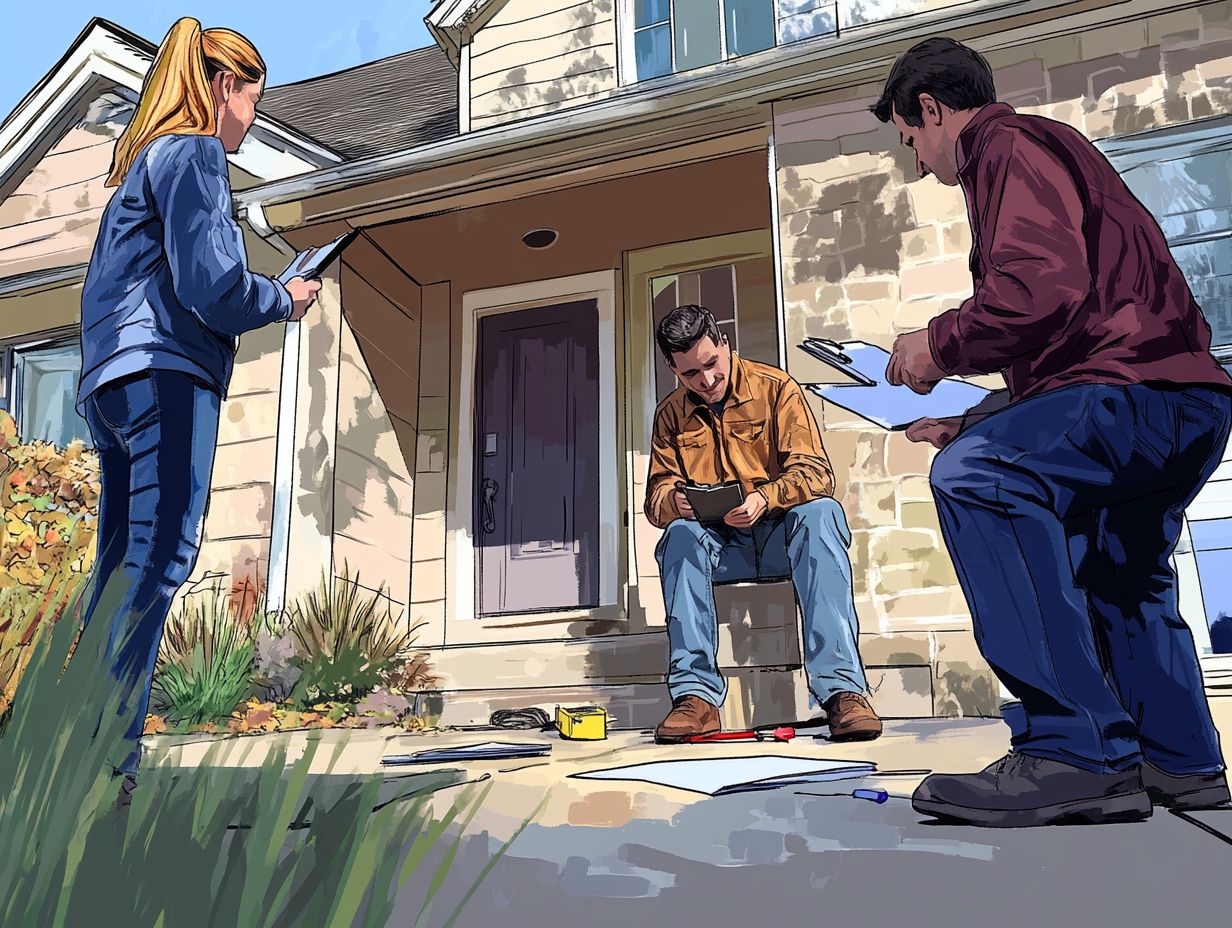
A home inspection covers essential aspects of the property, including the structure, plumbing, electrical systems, and HVAC system.
The inspection uses a detailed checklist to find safety concerns and assess the property’s overall condition.
Main Focus Areas and Potential Red Flags
During a home inspection, focus on identifying major and minor defects that could present challenges. It’s crucial to check for safety issues and the overall strength of the property, which is detailed in the understanding the home inspection process.
Look closely at the roof. Missing shingles or signs of leaks can lead to expensive repairs later on.
Examine the foundation for cracks or settling, which may indicate instability.
Check the plumbing for faulty pipes or outdated fixtures, as these can cause major water damage or health risks.
The electrical systems should also be evaluated for outdated wiring.
Spotting these issues early can help you during repair negotiations and influence your buying decisions.
Types of Home Inspections
Home inspections fall into standard and specialized categories, each tailored to meet home buyers’ needs.
Hiring a certified inspector is vital. Their expertise ensures a thorough evaluation of different property aspects, helping you make informed decisions as you buy.
Standard vs. Specialized Inspections
Standard inspections give you a broad view of the property’s condition. Specialized inspections focus on specific concerns, like pest issues or structural defects.
Both types of inspections cater to your needs, so you stay informed about your investment. A standard inspection typically covers plumbing, electrical, and roofing, making it ideal for first-time buyers.
Specialized inspections dive deeper into specific issues, such as mold tests or Radon checks, especially important for older homes or those in risky areas.
Using both inspections helps you make educated decisions, reduce risks, and ensure your new home is safe!
Choosing a Home Inspector
Choosing a qualified home inspector is key to a successful inspection. Their certifications ensure a thorough property evaluation, boosting your confidence in the purchase agreement.
Qualifications and Credentials to Look For
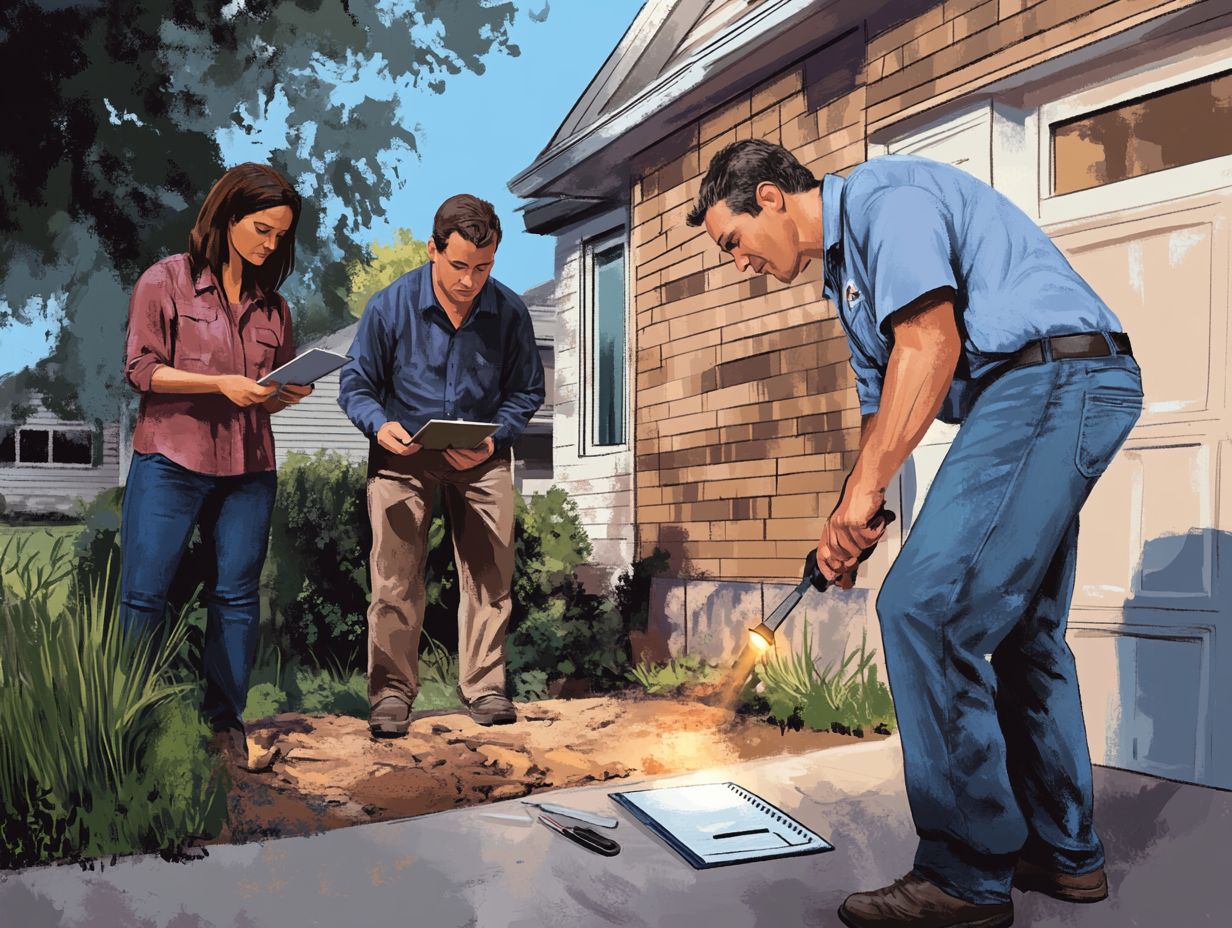
When picking a home inspector, verify their qualifications to ensure they are certified and follow set inspection standards.
Look for certifications from respected organizations like the American Society of Home Inspectors (ASHI), which enforces high standards.
A qualified inspector is committed to ongoing education and has the skills to identify potential property issues.
By choosing inspectors with strong credentials, you can feel confident in the inspection process and make better purchasing decisions.
Interpreting the Inspection Report
Knowing how to interpret the inspection report is crucial for home buyers. This document contains important findings and recommendations about the property’s condition.
Understanding these details helps you make smart decisions about your investment.
Understanding Terminology and Recommendations
Understanding the terminology and recommendations in an inspection report is crucial for you as a homebuyer. It helps you grasp the nuances of the findings and the potential implications for the property’s condition.
This knowledge helps you make informed decisions and highlights the importance of addressing specific issues highlighted in the report. For instance, terms like “delayed repairs” might hint at future repair costs, while phrases such as “urgent action required” signal immediate actions necessary to prevent further damage.
By prioritizing the recommended actions, you can reduce future expenses and sidestep unexpected surprises later on. Acting on these recommendations is crucial to protecting your investment and ensuring your new home stays in optimal condition.
Addressing Issues Found During Inspection
Addressing the issues identified during a home inspection is essential for you as a homebuyer. It informs your repair negotiations and aids in managing repair costs, while also offering crucial protection throughout the purchase process.
Options for Repair and Negotiation
As a homebuyer, you have a range of options at your disposal when it comes to negotiating repairs after a home inspection. These choices can significantly impact repair costs and ultimately influence the home appraisal.
You might consider:
- Asking the seller to address specific repairs noted in the inspection report,
- Requesting credits to cover repair costs that you prefer to handle after the purchase,
- Negotiating a reduction in the purchase price to account for necessary updates.
When navigating these negotiations, it s essential to communicate clearly and respectfully. Articulating your concerns based on the inspection findings can strengthen your position and help the seller understand your rationale.
Mastering effective communication can lead to more favorable outcomes and facilitate a smoother transaction process.
Frequently Asked Questions
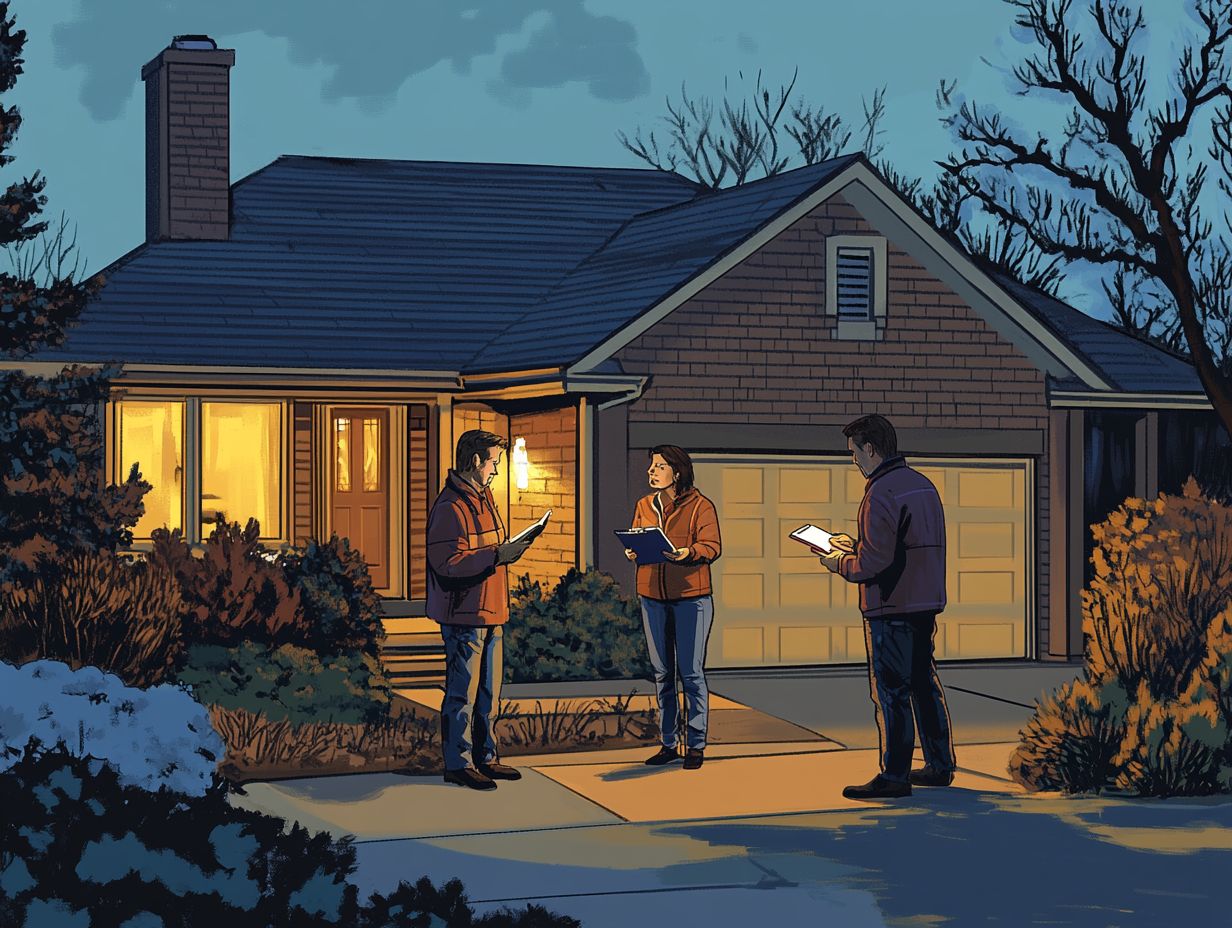
Have you ever wondered about home inspection protocols?
Home inspection protocols are a set of guidelines and standards that home inspectors use to assess the condition of a home. Understanding these home inspection protocols covers various aspects of a house, including its structure, systems, and overall safety.
Why is it important to understand home inspection protocols?
Understanding home inspection protocols is crucial because it allows you to have a better grasp of what to expect during a home inspection. Familiarizing yourself with understanding home inspection standards also helps you be more aware of any potential issues that may arise during the inspection.
Who creates home inspection protocols?
Home inspection protocols are created by organizations such as the International Association of Certified Home Inspectors (InterNACHI) and the American Society of Home Inspectors (ASHI), which establish and maintain industry standards for home inspections. For more information, refer to the understanding home inspection standards and practices.
What are some common areas that home inspection protocols cover?
Home inspection protocols typically cover areas such as the foundation, roof, plumbing, electrical systems, heating and cooling systems, and the overall structure of the home. For a comprehensive overview, it’s important to understand the home inspection process, which also includes assessments of the exterior and interior of the house.
Do all home inspectors follow the same protocols?
No, not all home inspectors follow the same protocols. Some may have their own set of guidelines, while others may adhere to standards set by a specific organization. To ensure you’re making an informed choice, it is important to research understanding the process of home inspections your inspector follows before hiring them.
What should I do if I have questions about the home inspection protocols?
If you have any questions or concerns about the home inspection protocols, it is best to speak directly with your home inspector. They can provide more information and clarify any misunderstandings you may have, especially regarding what to know about home inspection policies. Don’t hesitate to reach out!

